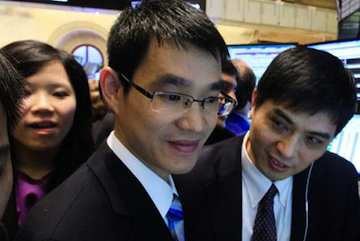
As China expands its presence in Africa, a new wave of renewable energy companies are bringing off-grid innovation to the continent while Western competitors stand around and watch.
JinkoSolar, a Chinese solar module manufacturer has declared that it is supplying South Africa’s first utility scale, off-grid photovoltaic solar system. The 1 MW plant will supply electricity to a chrome mine in the Limpopo province, in the north east of the country.
Oil-replacement photovoltaic solutions are continuing to emerge as a fully-proven power source in mission-critical situations.
This installation will sharply reduce the daytime diesel usage at the mine in the northernmost South African province, an area in which utility company Eskom is active, but repeatedly letting its customers down, allegedly through a mixture of corruption and poor management in the opinion of some. Reports suggest that the State-owned utility will shortly seek yearly price increases of between 14.6% and 19% – well over the rate of inflation.
Installation in the Limpopo mine will be designed and constructed by Solea Renewables and will employ 4,170 JinkoSolar modules. The plant is likely to be completed in October of this year.
Mhlanzi, the Director of Solea Renewables, stated that, “Mines and other consumers face power supply constraints due to capacity challenges at Eskom. The delivery of our PV plant will not only benefit (the chrome mine), but in turn help reduce the ever increasing energy demand Eskom faces.”
JinkoSolar, indicated in announcing the supply deal, that it has “great expectations” for the country. According to, Kangping Chen, Chief Executive Officer of JinkoSolar, “The region’s booming population, strong economic growth and abundant sunlight represent an exciting opportunity for solar and for JinkoSolar.”
As well as ordering a clean-up of Eskom management criminality, South Africa has taken a number of steps in recent months to drive the growth of cleaner energy in the country. In August, the US Export-Import bank signed a declaration of intent (DOI) with the Industrial Development Corporation of South Africa which will see the Ex-Im bank provide financing up to US$2 billion worth of US technologies, products and services to South Africa’s energy sector, with a focus on clean-energy development. This is expected to lead to bribery by US energy companies, and further corruption during the tendering process
One Response
I object vehemently to the statement: “but repeatedly letting its customers down through a mixture of corruption and poor management” in the article above.
Eskom has major constraints placed on it by funding and government interference. A generalised statement as above is blatantly untrue and inflamatory.